This article looks at the Top UK Universities of 2023 based on their academic rankings, the quality of their research, and how happy their students are.
The United Kingdom is proud of its many well-known universities, known for their academic excellence, innovative research, and high teaching standards.
With students from every nook and corner of the globe flocking in to pursue their academic objectives, choosing the best institution to pursue one’s literary ambitions can be challenging. .
1. University of Cambridge
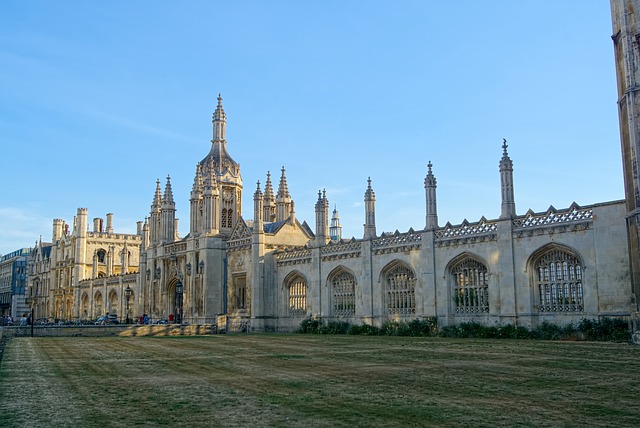
The University of Cambridge remains among the topmost universities globally, with an enviable reputation for academic research and innovation, mainly in science and engineering. It has a robust undergraduate and postgraduate program in various fields, and its admission process is highly competitive, necessitating excellent grades.
History of the University of Cambridge
In the year of our Lord 1209, a group of learned scholars departed from the halls of Oxford due to a clash of ideas with the town’s residents. This band of scholars established a small yet thriving academic community in Cambridge, consisting of a few halls and a church. As time progressed, this fledgling institution began burying, eventually becoming a hub for studying mathematics and science in the 16th century—many a renowned scientific luminary, such as Isaac Newton, lecturing and learning there. Fast forward to the present day, and the University of Cambridge has ascended to great heights of academic prestige and global recognition for its exceptional research and education.
The University of Cambridge is organized into 31 colleges and six schools, each operating autonomously with its own endowments and assets. Every college has a storied past and a unique set of customs and practices, with pupils applying directly to their preferred college rather than the university. The six schools of the university are the School of Arts and Humanities, the School of Humanities and Social Sciences, the School of Physical Sciences, the School of Biological Sciences, the School of Clinical Medicine, and the School of Technology.
Academics at the University of Cambridge
The University of Cambridge offers many undergraduate and graduate programs that encompass a wide range of academic fields, including but not limited to the arts, humanities, sciences, and engineering.
The educational methodology espoused by this venerable institution is centred around small-group tutorials and seminars, thereby fostering an atmosphere of personalized instruction and discussion-based learning. The academic program at the University of Cambridge is known for its exacting standards, with students expected to exhibit extraordinary motivation and self-reliance in their studies.
Research at the University of Cambridge
Research serves as a bedrock of the University of Cambridge’s foundational ethos. The university is home to numerous research centres and institutes, some of which include the Cavendish Laboratory, the Institute of Astronomy, and the Cambridge Centre for Climate Science.
Additionally, the University of Cambridge is a member of the Cambridge Phenomenon, which denotes a conglomerate of high-tech firms and research institutions in Cambridge.
The University of Cambridge boasts a long and storied history of pioneering research, with many groundbreaking discoveries and innovations having been unearthed within its halls. Some of the most notable discoveries and inventions to have arisen from the University of Cambridge’s labs and workshops encompass the unearthing of DNA’s double helix structure by Francis Crick and James Watson, the invention of the first computer by Charles Babbage, and the discovery of the electron by J.J. Thomson.
Student Life at the University of Cambridge
Student life at the University of Cambridge is a rich and varied tapestry. With over 800 student societies and clubs in operation, catering to various interests spanning sports, music, drama, and politics, the university pulsates with vibrant activity. The University of Cambridge is also renowned for its many student-led events, such as May Balls and Formal Halls, which comprise elaborate formal dinners held in the college dining halls. Furthermore, the university is known for its formidable rowing teams, which compete in the annual Boat Race against their Oxford counterparts, an event of unparalleled prestige and renown in the world of competitive rowing.
2. University of Oxford

The University of Oxford, The University of Oxford dates back to the 11th century and is the oldest university in the English-speaking world. Its unique collegiate system has 38 self-governing colleges and six permanent private halls.
Oxford has a tremendous academic reputation in law, medicine, and business, and it has produced 27 British prime ministers and several Nobel laureates.
History of the University of Oxford:
The University of Oxford was founded in 1096, making it one of the oldest universities in the world. It started as a gathering of scholars in Oxford who came together to teach and learn.
By the 13th century, the university had developed a formal structure, with colleges established to house students and provide them with education. Today, the University of Oxford comprises 38 colleges and six permanent private halls, each with a distinct character and history.
Academic Programs:
The University of Oxford is known for its academic rigour and excellence. It offers a wide range of undergraduate and postgraduate programs in various fields of study, including arts, humanities, social sciences, natural sciences, and medicine. Some of its most renowned programs include:
- Oxford Law School
- Saïd Business School
- Oxford Internet Institute
- Department of Computer Science
- Faculty of Philosophy
- Faculty of History
- Faculty of Oriental Studies
The University of Oxford also has a strong research culture, with many world-leading research centres and institutes. Students at Oxford can work alongside leading academics and researchers in their fields.
Student Life at Oxford:
Being a student at the University of Oxford is an experience like no other. Oxford is a vibrant and lively city with a rich cultural heritage. The city has numerous museums, galleries, theatres, and a thriving nightlife. In addition, students at Oxford have access to a wide range of clubs and societies, covering everything from sports and music to politics and debating. There are also many opportunities for volunteering and community service.
3. Imperial College London
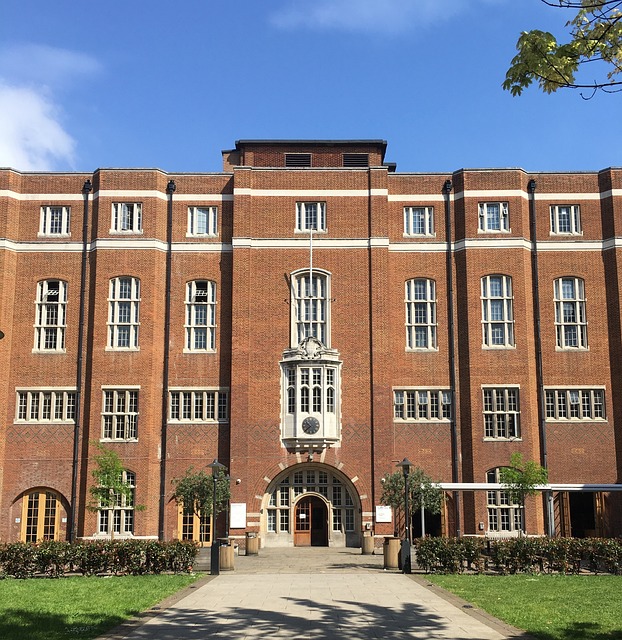
Imperial College London Imperial College London is a public research university in London focusing on science, engineering, medicine, and business. Its outstanding research output and innovation in the field of health sciences have earned it a global reputation, and its admission requirements are notably high.
A Brief Overview
Imperial College London is a world-leading university with a mission to contribute to society through excellence in education, research, and innovation. It strongly focuses on science, engineering, medicine, and business and is committed to addressing global challenges such as climate change, health, and sustainable development. Some of the key facts and figures about Imperial College London include:
- Imperial College London is ranked 8th globally and 3rd in Europe in the 2022 QS World University Rankings.
- It is home to over 20,000 students and 8,000 staff members from over 140 countries.
- Imperial College London has four faculties: engineering, medicine, natural sciences, and business school.
- It has campuses and partnerships worldwide, including with top schools in China, Singapore, and the United States.
- Imperial College London is known for its cutting-edge research, which has led to many breakthroughs and innovations in healthcare, energy, and the environment.
Imperial College London’s commitment to innovation
One key factor that sets Imperial College London apart from other universities is its strong commitment to innovation. This is reflected in the institution’s culture, values, and practices and is evident in its research, teaching, and enterprise activities.
Research
Imperial College London is home to some of the world’s leading research institutes and centers, which focus on various areas such as artificial intelligence, biotechnology, climate change, and public health. The institution invests heavily in research, with over £1 billion in research income and grants in 2020.
Imperial College London’s research has led to many significant breakthroughs and innovations, including the discovery of penicillin, the development of the first 3D-printed heart, and the creation of the COVID-19 vaccine. The institution’s researchers work closely with industry, government, and other partners to translate their findings into real-world solutions and applications.
Teaching and Learning
Imperial College London’s commitment to innovation is also reflected in its approach to teaching and learning. The institution offers a range of undergraduate and postgraduate programs designed to equip students with the knowledge, skills, and mindset needed to tackle the complex challenges of the 21st century.
Imperial College London’s teaching is informed by its research, meaning students can learn from world-leading experts in their fields. The institution also invests heavily in digital technologies and online learning, which has become increasingly important during the COVID-19 pandemic.
4. University of Edinburgh
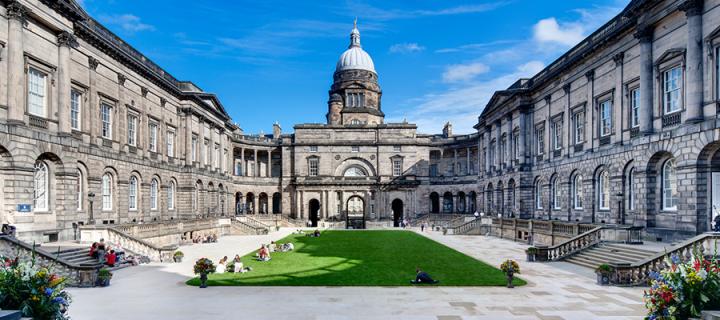
The University of Edinburgh, dating back to the 16th century, is one of Scotland’s oldest universities. It is known for its academic excellence and research output, primarily in medicine, the social sciences, and the humanities. It has produced many renowned personalities, including J.K. Rowling and Charles Darwin.
History of the University of Edinburgh
King James VI of Scotland started the University of Edinburgh in 1583. He wanted to make a place for learning that would be on par with the best universities in Europe. Over the centuries, Edinburgh has been a major force in shaping Scotland’s, Britain’s, and the world’s intellectual, cultural, and scientific landscape. It has given the world many Nobel Prize winners, such as physicist Peter Higgs, economist James Mirrlees, and chemist Sir Fraser Stoddart. It has also given the world many famous people in literature, philosophy, medicine, and law.
Campus and Facilities
The University of Edinburgh is in the heart of Edinburgh, one of the world’s most beautiful and historic cities. Its main campus is spread across several locations, including George Square, Old College, New College, and the Royal Infirmary of Edinburgh. The university has state-of-the-art libraries, museums, laboratories, sports centers, and student housing, among other things. Its buildings show a wide range of architectural styles, from the Gothic splendor of Old College to the modern elegance of the Informatics Forum.
Faculties and Schools
Four colleges make up the University of Edinburgh. Each college has several schools and departments that offer undergraduate and graduate programs in various subjects.
College of Arts, Humanities, and Social Sciences
This college encompasses the humanities, social sciences, and creative arts, including schools such as the School of History, Classics, Archaeology, Social and Political Science, and the Edinburgh College of Art. Students can choose from various disciplines, from literature and philosophy to anthropology and film studies.
College of Science and Engineering
This college has schools like the School of Physics and Astronomy, the School of Engineering, and the School of Informatics that deal with the natural and physical sciences, engineering, and math. Students can pursue computer science, biology, chemistry, and physics degrees.
College of Medicine and Veterinary Medicine
This college offers medical, biomedical sciences, and veterinary medicine degrees, including from schools such as the Edinburgh Medical School and the Royal (Dick) School of Veterinary Studies. Students can study anatomy, genetics, neuroscience, and epidemiology.
Edinburgh Business School
This school is part of Heriot-Watt University and offers business and management programs, including MBA, MSc, and DBA degrees.
5. University of Manchester
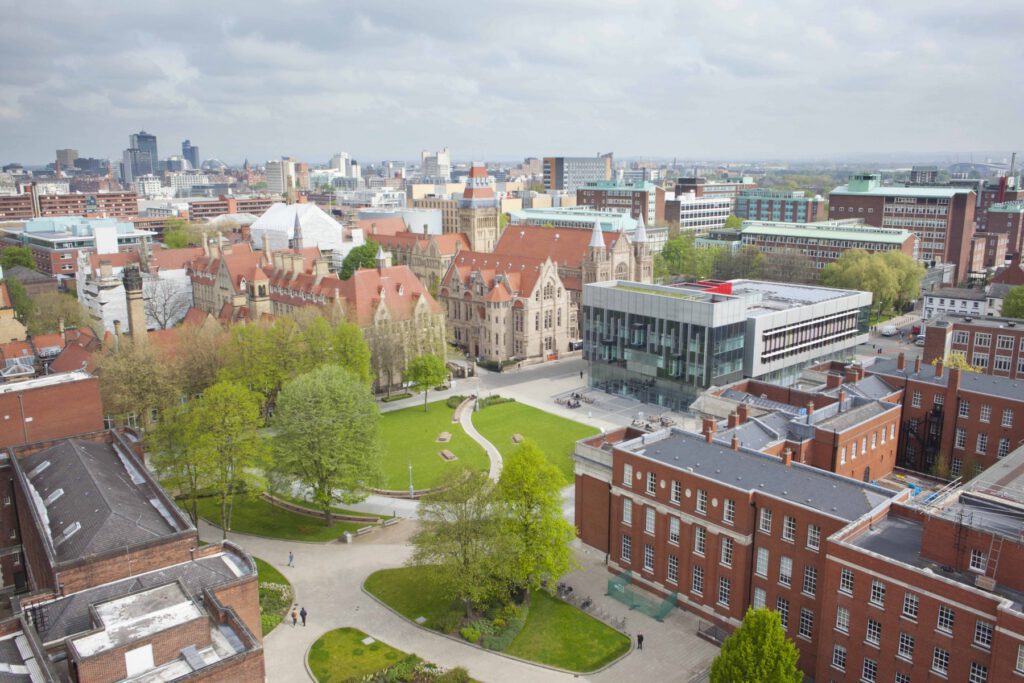
The University of Manchester, located in Manchester, is one of the largest universities in the UK, with over 40,000 students enrolled in its undergraduate and postgraduate programs.
Manchester boasts of academic excellence, primarily in engineering and technology, and is home to the Manchester Institute of Biotechnology, the leading scientific research institute in the UK.
6. King’s College London
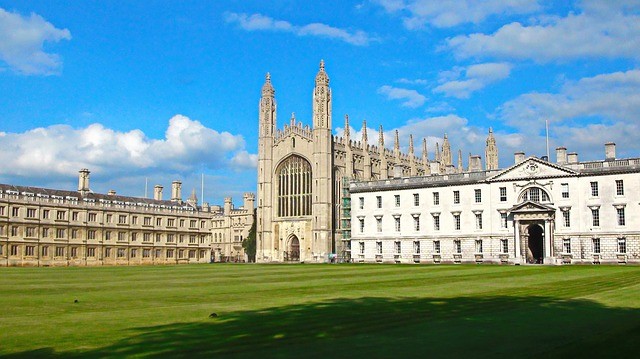
King’s College London is a public research university in the heart of London. The university was founded in 1829 and is renowned for its academic excellence in various fields, including law, business, the humanities, and the social sciences. With a global reputation for research excellence, King’s College London has consistently ranked in the top 10 universities in the UK.
Other top UK universities
Aside from King’s College London, several other top universities in the UK have excellent programs. Let’s take a closer look at some of these institutions.
7. University of Bristol
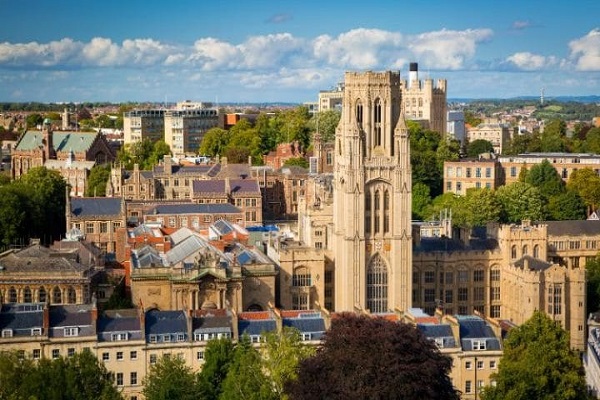
The University of Bristol is a public research university located in Bristol. The university is known for its academic excellence in the humanities, social sciences, and engineering. Bristol is highly competitive, with high admission standards across all its programs.
8. University of Glasgow

One of Scotland’s oldest universities, the University of Glasgow, was founded in the 15th century. The university is renowned for its academic excellence in medicine, the social sciences, and the humanities. Glasgow is home to many world-renowned research centres, and its research output is among the best in the UK.
9. University of Warwick

The University of Warwick is a public research university located in Coventry. The university is renowned for its academic excellence in the social sciences, arts, engineering, and medicine. Warwick is home to many world-class research centers, and its research output is among the best in the UK.
10. The University of Leeds
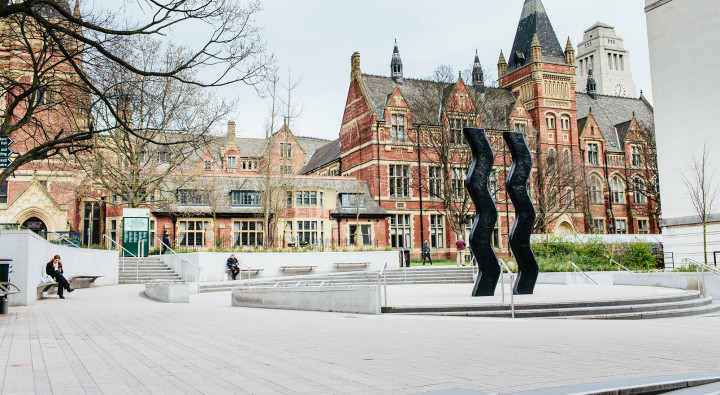
The University of Leeds is a well-known public research university in the busy city of Leeds. It is known for its excellent social sciences, law, business, and engineering programs. With a highly competitive admissions process that upholds rigorous standards, Leeds sets the bar for excellence in higher education.
Do you have questions about studying at a UK university? Here are some frequently asked questions:
Each university and program has its specific admission requirements. In general, however, applicants will need to provide academic transcripts, take an entrance exam, secure letters of recommendation, write a personal statement, and demonstrate proficiency in the English language.
Yes! UK universities welcome international students, but they must meet admission requirements and obtain a valid student visa.
Tuition fees vary depending on the program and university. Still, international students can expect to pay between £15,000 and £25,000 per year for undergraduate programs and up to £35,000 per year for graduate programs.
Yes, many UK universities provide scholarships and financial aid for international students. Be sure to check with your chosen university for scholarship opportunities.
Most UK universities use the International English Language Testing System (IELTS) or the Test of English as a Foreign Language (TOEFL) to measure how well someone speaks English. The Pearson Test of English (PTE) and the Cambridge English Language Assessment are two other tests that may be accepted.



This is interesting…… 😁🤩 the article has a lot of useful information…..🙏